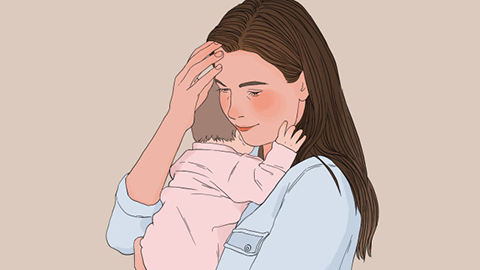How to treat postpartum depression
Postpartum depression can generally be treated through professional psychological counseling and intervention, emotional support and companionship from family members, regular sleep-wake cycles to restore physical and mental condition, moderate exercise to improve mood, and when necessary, medication as an adjunct to treatment. The specific approaches are analyzed as follows:

1. Professional Psychological Counseling and Intervention: Seek help from a psychologist. Use professional methods such as cognitive behavioral therapy (CBT) and interpersonal therapy to address postpartum emotional issues, correct negative thought patterns, and gradually alleviate depressive symptoms.
2. Emotional Support and Companionship from Family: Family members should pay close attention to the mother's emotional changes, actively share childcare duties and household chores, and provide understanding, patience, and encouragement. This helps reduce her psychological burden and strengthens her confidence in recovery.
3. Regular Sleep-Wake Cycles to Restore Condition: Ensure the mother gets sufficient sleep by coordinating childcare responsibilities with rest periods to avoid excessive fatigue. Maintain regular meal times and adequate nutrition to support physical recovery and emotional regulation.
4. Moderate Exercise to Improve Mood: When physically able, engage in gentle exercises such as postnatal yoga or walking for 15–20 minutes per session. These activities promote the release of endorphins, helping to relieve depressive feelings and improve overall mental well-being.
5. Medication as Adjunct Treatment When Necessary: If depressive symptoms are severe, antidepressant medications suitable for postpartum women—such as sertraline tablets or fluoxetine capsules—may be prescribed under a doctor’s guidance. Close monitoring of drug responses and both maternal and infant health is essential.
In daily life, mothers should learn to proactively express their needs and avoid bearing stress alone. Family members should take postpartum depression seriously and promptly assist in seeking professional help when abnormalities are observed.







